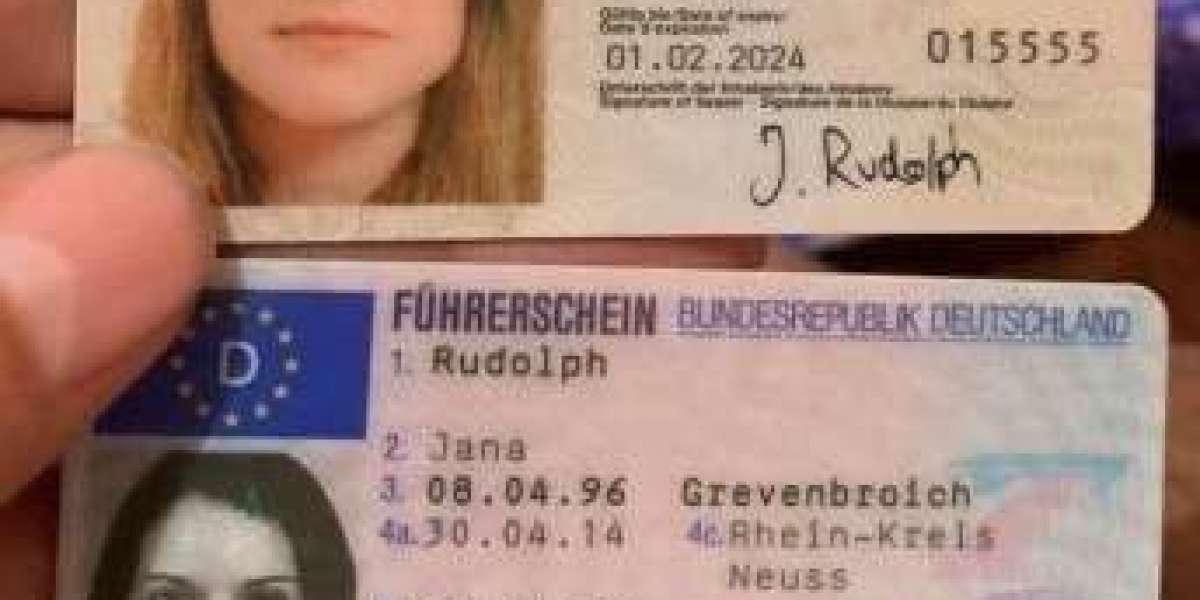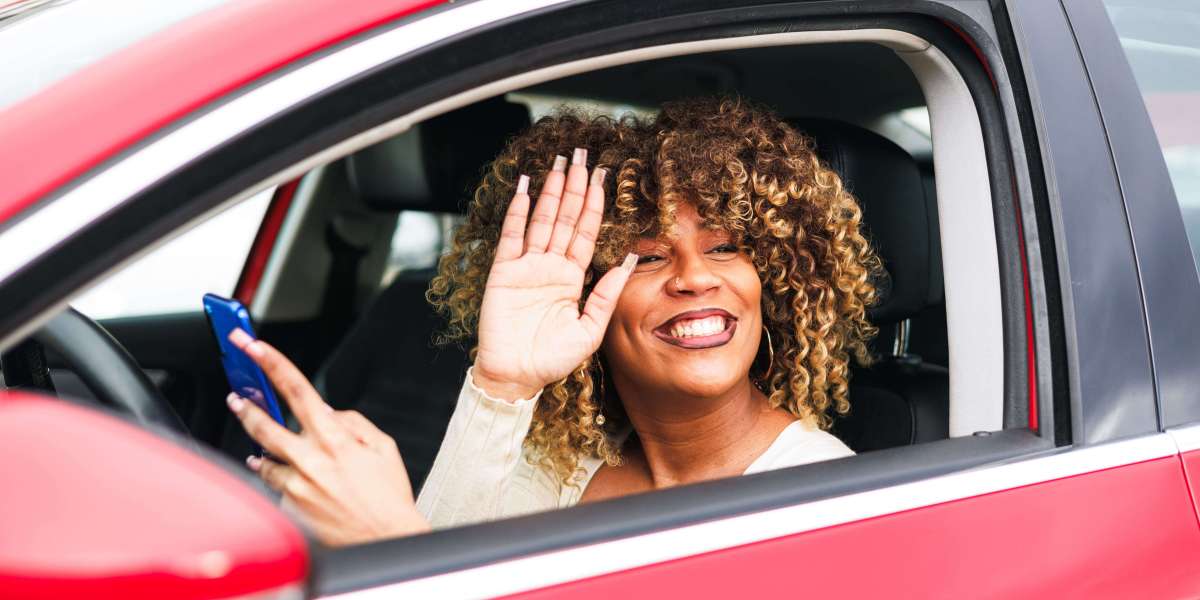Buy a Driving License in Germany: Understanding the Legal Process and Avoiding Illegal Shortcuts
The question "Can I buy a driving license in Germany?" frequently arises, particularly among those new to the nation or daunted by the prospect of rigorous screening. While the phrasing may recommend an easy deal, it's vital to instantly clarify that purchasing a driving license in Germany in the literal sense is illegal and carries serious effects. There is no legitimate way to just buy a license without going through the required training and passing the needed examinations.

This short article will look into the complexities of getting a driving license in Germany legally. It will explain the correct treatments, the costs involved, and why trying to "buy" a license through illicit means is not just against the law however also exceptionally hazardous and ultimately useless. Comprehending the legitimate path is necessary for ensuring roadway security and getting a valid driving license recognized within Germany and beyond.
The Reality: Obtaining a Driving License, Not Buying It
Rather of "purchasing" a license, the accurate term is acquiring a driving license. Germany, renowned for its high driving standards and strict guidelines, has a structured process developed to make sure all drivers are competent and well-informed. This procedure includes extensive training, both theoretical and useful, followed by strenuous screening to assess a prospect's preparedness to operate a vehicle securely on public roads.
The German driving license system is built on the concept of competence-based licensing. It's not about merely paying a charge; it's about demonstrating that you possess the required abilities, understanding, and responsible attitude to be a safe driver. This approach substantially adds to Germany's fairly low accident rates compared to some other countries.
Why "Buying" a License is a Dangerous Misconception
The concept of purchasing a driving license frequently comes from a misconception or a desire to circumvent the effort and time needed for appropriate training. However, attempting to obtain a license through unlawful channels, such as acquiring counterfeit files or bribing authorities, carries considerable threats and is strongly prevented for numerous vital reasons:
Legality and Criminal Penalties: Attempting to obtain a driving license fraudulently is a crime in Germany. Individuals captured engaging in such activities can face extreme charges, consisting of hefty fines, imprisonment, and a criminal record. This can have long-lasting repercussions impacting future work, travel, and residency licenses.
Void License and Insurance Issues: A fraudulently acquired driving license is not acknowledged as legitimate. If caught driving with a fake license, you will be thought about driving without a license. This causes further legal consequences and can invalidate your car insurance. In the occasion of an accident, you will be held fully responsible for damages, as your insurance will likely be void.
Threat to Public Safety: Bypassing appropriate training and testing threatens not only your own safety but likewise the safety of all other roadway users. Driving requires a complex set of abilities, knowledge of traffic laws, and responsible decision-making. Individuals who have not gone through proper training are ill-equipped to handle the challenges of driving, increasing the threat of mishaps and potentially triggering serious harm or deaths.
Ethical Concerns: Engaging in prohibited activities undermines the integrity of the licensing system and reveals an outright disregard for the rule of law. It adds to corruption and deteriorates trust in organizations developed to guarantee public security.
The Legitimate Path: Steps to Obtaining a German Driving License
The right and just safe method to get a driving license in Germany is to follow the recognized legal process. This procedure, while demanding, is developed to equip you with the required skills and understanding to be a responsible and safe driver. Here are the crucial actions involved:
1. Registration in a Driving School (Fahrschule):
- You need to register with an officially recognized driving school. Picking a trustworthy school is essential as they will direct you through the entire procedure.
- Driving schools provide courses in German, and progressively, in English, particularly in bigger cities. Guarantee the school provides guideline in a language you are comfy with.
- Upon enrollment, you'll receive study materials and be arranged for obligatory theory lessons.
2. Theory Lessons and Examination:
- Theory lessons cover German traffic laws, roadway signs, safe driving practices, vehicle innovation, and ecological factors to consider. The variety of necessary lessons depends upon the license category you are looking for. For a basic car license (Class B), it normally involves around 12 double lessons of standard theory and additional particular lessons.
- After completing the obligatory lessons, you need to pass a computer-based theory test carried out by an official screening organization (TÜV or DEKRA).
- The theory test includes multiple-choice concerns and video-based questions. You need to accomplish a minimum passing rating to proceed to practical training.
3. Practical Driving Lessons:
- Once you pass the theory test, you can start practical driving lessons with your driving instructor.
- The number of useful lessons needed varies considerably depending upon private learning speed, prior driving experience (if any), and the instructor's assessment of your development.
- Mandatory special driving lessons are consisted of, covering freeway driving, night driving, and driving beyond city locations.
- Practical lessons are important for developing driving abilities, understanding traffic circumstances, and finding out to apply the theory knowledge in real-world scenarios.
4. Practical Driving Examination:
- After your driving trainer considers you prepared, you will be scheduled for the useful driving test.
- The practical test is performed by an examiner from TÜV or DEKRA, accompanied by your driving trainer.
- The test typically lasts around 45-60 minutes and examines your driving capability in different traffic circumstances, including city driving, rural roads, and possibly motorway driving.
- The examiner will examine your overall driving abilities, adherence to traffic laws, smooth vehicle control, observation skills, and safe driving habits.
5. License Issuance:

- If you effectively pass both the theory and useful examinations, you will receive your German driving license.
- The license is generally provided soon after passing the useful test, often on the exact same day or within a couple of days.
- You will get a probationary driving license (Probezeit) for the first two years. During this duration, stricter guidelines use, especially relating to traffic offenses.
Expenses Associated with Obtaining a Driving License
While you can not "buy" a license outright, there are considerable expenses connected with the legitimate procedure. Understanding these costs can help you budget plan accordingly. These costs can vary depending on the driving school, your knowing speed, and test fees, but typically include:
- Driving School Enrollment Fee: This is a one-time registration fee charged by the driving school.
- Theory Lesson Fees: Fees are charged per theory lesson.
- Learning Materials: Costs for books, online learning platforms, and practice tests.
- Practical Lesson Fees: Fees are charged per useful driving lesson. This is often the most substantial cost part, as the number of lessons required varies.
- Discussion for Theory Test Fee: A cost to present yourself for the theory test at TÜV/ DEKRA.
- Presentation for Practical Test Fee: A charge to present yourself for the practical test at TÜV/ DEKRA.
- License Issuance Fee: A cost charged by the authorities for providing the driving license.
- Eye Test and First Aid Course: These are compulsory requirements and include different fees.
List of Costs (Approximate Range):
- Driving School Enrollment: EUR50 - EUR200
- Theory Lessons (Basic Course): EUR200 - EUR400
- Knowing Materials: EUR50 - EUR100
- Practical Lessons (per lesson): EUR40 - EUR70 (Number of lessons varies substantially)
- Theory Test Fee: EUR25 - EUR30
- Dry Run Fee: EUR120 - EUR150
- License Issuance Fee: EUR40 - EUR50
- Eye Test: EUR20 - EUR30
- First Aid Course: EUR30 - EUR50
Essential Considerations:
- Time Commitment: Obtaining a German driving license needs a substantial time commitment, generally ranging from a couple of weeks to numerous months, Deutschen FüHrerschein Kaufen Erfahrungen depending upon individual knowing speed and lesson accessibility.
- Language Proficiency: While some driving schools provide English direction, a basic understanding of German can be advantageous, especially for navigating theoretical materials and traffic signs in day-to-day driving.
- Patience and Perseverance: The procedure can be difficult, and it needs perseverance and perseverance. Do not be prevented by preliminary troubles. Consistent effort and a positive attitude are key to success.
In Conclusion:
While the idea of "purchasing" a driving license may seem appealing to those seeking a quick and simple option, it is important to understand that such attempts are illegal, hazardous, and ultimately disadvantageous. The legal process for acquiring a German driving license is developed to guarantee road safety and produce proficient drivers. By enrolling in a credible driving school, vigilantly studying, practicing effectively, and adhering to the established procedures, you can effectively acquire a valid German driving license and enjoy the flexibility and responsibility of driving legally and securely. Remember, your security and the security of others on the road are paramount, and appropriate training is the only legitimate path to achieving this.
Often Asked Questions (FAQs)
Q: Is it possible to get a German driving license without going to driving school?A: No, enrollment in a recognized driving school is obligatory in Germany. Driving schools offer essential theoretical and practical training and guide you through the entire licensing process.
Q: Can I utilize my foreign driving license in Germany?A: Depending on your nation of origin, you may be able to use your foreign driving license in Germany for a minimal duration (normally 6 months). After this period, you will typically require to acquire a German driving license. For licenses from EU/EEA nations, acknowledgment is usually simple. For licenses from non-EU/EEA countries, you may require to go through a conversion process, which might include theory and/or practical tests.
Q: How long does it require to get a German driving license?A: The duration varies, but it normally takes in between 2 to 6 months. Factors affecting the timeframe include your learning speed, schedule of driving lessons, and waiting times for tests.
Q: What takes place if I fail the theory or dry run?A: If you fail either test, you are permitted to retake it. There is generally a waiting duration before you can retake the test, and you may require additional lessons before attempting the dry run once again. There is no limit to the number of times you can retake the tests, but each effort involves additional fees.
Q: Can I get a driving license in Germany if I do not speak German?A: While most driving schools mainly operate in German, some schools in larger cities use courses and guideline in English. It's necessary to discover a driving school that can offer direction in a language you comprehend. The theory test is available in numerous languages, consisting of English.
Q: What is the probationary period (Probezeit) for brand-new drivers in Germany?A: New drivers in Germany go through a two-year probationary period (Probezeit). Throughout this duration, more stringent rules use, and traffic offenses carry much heavier charges. Serious offenses during the Probezeit can lead to obligatory involvement in refresher courses and even cancellation of the driving license.
Q: What is the minimum age to get a driving license in Germany?A: The minimum age for a standard car driving license (Class B) in Germany is 18 years old. Nevertheless, "accompanied driving" (Begleitetes Fahren mit 17) is possible from the age of 17, enabling young drivers to drive with a designated adult manager.
Q: Is it more costly to get a driving license in a big city or a rural location?A: Driving school costs and lesson costs can in some cases be a little greater in larger cities due to higher operating expense. Nevertheless, the difference is normally not considerable. Availability of English-speaking driving schools might be better in larger cities.








